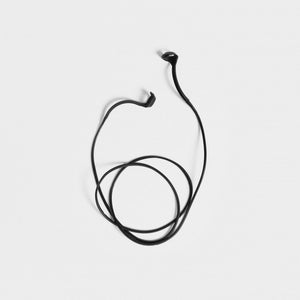
Music, Moto, Kids, Reusable
⛄ Winter deal: 10% off with code LIVETOTHEMAX - Free delivery from €29 🚚

When the weather is nice, you will probably go swimming, surfing, ... Water can be very nice to relax but did you know that your ears and especially your children's ears are very exposed during these activities? At the sea or in the pool, protecting your ears can prevent ear infections, or even hearing loss in the most serious cases.
The ear is divided into 3 parts, each of which has a specific role in hearing. One of them, the external ear, is in direct contact with the outside world thanks to the ear canal which picks up sounds and surrounding noises. When your ears come into contact with water, your ear canal can fill with water without you even realizing it. Most of the time, this water does not stay in your ear canal after you finish swimming. But if you feel like your ears are clogged, or sounds are echoing when you speak, it's because water has become trapped inside your ear canal, often behind a small plug of earwax. We, as adults, realize this much more easily than our children. This water, even if chlorinated, is not always clean and may contain bacteria or germs. By getting stuck in their ears, these bacteria can proliferate causing an infection. This is otitis externa, also called swimmer's ear.
This painful condition can be treated if you see your doctor. But if it is not treated quickly, or if you suffer from repeated ear infections, it can affect your hearing for a long time.
As you can see, the ears are very sensitive to water and therefore, the frequent contact between the auditory organ of children and water can cause huge inconveniences on the health of your little one. These problems can even get worse and trigger serious ailments such as
- Earwax plug formation
- Acute otitis externa
- Hearing aid infection
- Dizziness
- Tinnitus
- Resonance
Put earplugs in their ears. If you can keep water out of their ear canals, you're much less likely to have a problem. Choose earplugs that are designed for swimming. A swimming cap that covers your ears can also help.
Don't swim in lakes, ponds or rivers where there is a lot of bacteria. Check for signs that indicate bacteria levels and whether it is safe to swim. High levels of bacteria in the water can make it easier for you to get an ear infection.
Make sure pools and spas are clean. Dirty water is more likely to contain bacteria. If you don't know if a pool or spa is clean, don't go in.
Shake or flush the water out of your ears. Simply tilt your head and let gravity do its work. Pulling on your earlobe at different angles can also help.
Dry your ears. Use a clean towel to gently rub the outside of your ear. You can also use a hair dryer. Just be sure to set it on low and keep it about a foot away from your ear.
In conclusion, swimmer's ear is not always caused by a particular water activity, it can also be caught after scratching the inside of your ear, which can damage your inner ear canal and let bacteria in. A healthy lifestyle is therefore essential to avoid any problems.